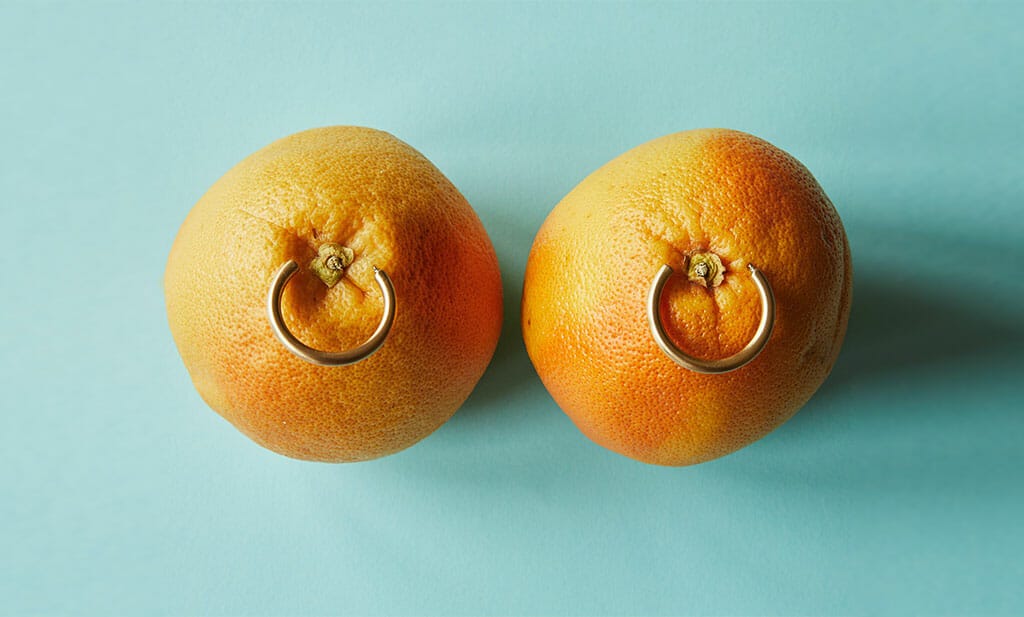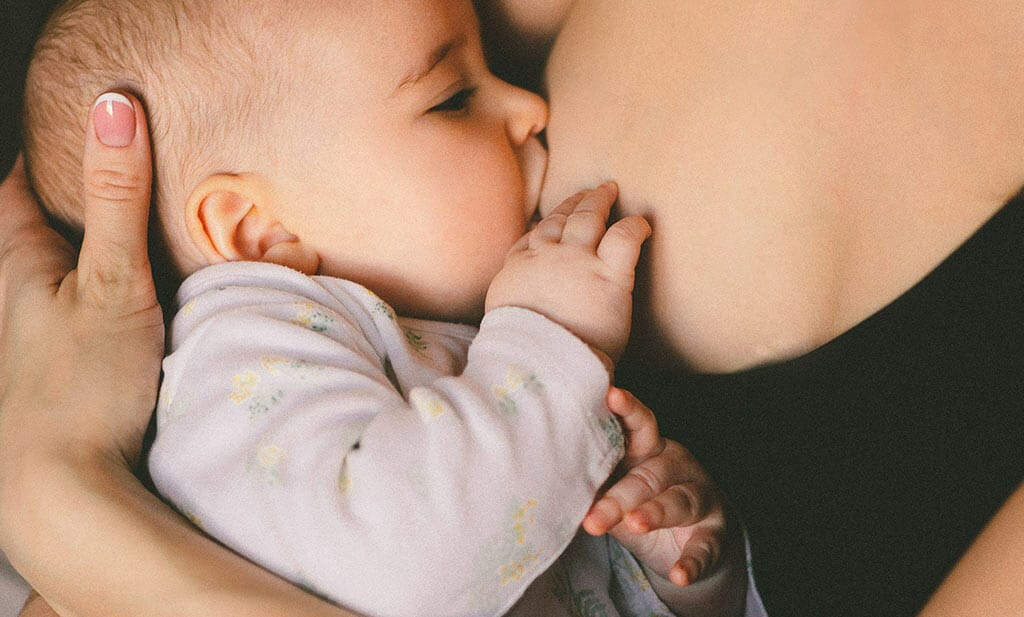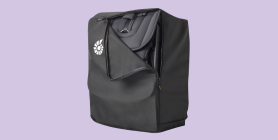
Nipple piercings: What do I have to bear in mind during pregnancy and breast/chestfeeding?
When you hear terms like snake bite, flat helix, high nostril or orbital, you immediately know what it's all about? Great, then maybe this is the right blog post for you. For everyone else: The above terms refer to different piercings for the mouth, ear and nose. Since body jewellery is currently making a comeback, we wanted to take another look at the topic of piercings and answer the question: can you breastfeed with a nipple piercing? It's clear that a nose or ear stud won't get in the way. Unless your baby discovers something glittering on your face and wants to pull it (ouch!). However, this post is about nipple piercings.
So, if you have your nipples pierced and you're wondering can you breast/chestfeed with a nipple piercing in, then read on:
Nipple piercings in pregnancy
If you want to keep your piercing, consider using larger jewellery than you are used to. As breasts/chest tissue grows during pregnancy and the nipple increases in volume. This means there could be some unpleasant pressure points. We also recommend switching to nylon jewellery (e.g. plastic retainers made of polytetrafluoroethylene (PTFE) or Teflon).
The advantage of this is that the material usually doesn't bother you when your breasts/chest becomes more sensitive. If you don't have a nipple piercing yet, but would like one, we advise against getting pierced during pregnancy. It can take up to twelve months for the piercing channel to heal. Breast/chest growth and subsequent breast/chestfeeding are not conducive to healing the wound.
Can you breastfeed with a nipple piercing?
It is advisable to remove the piercing before breast/chestfeeding, otherwise the baby will not be able to suckle effectively. It's possible that baby might hurt themself, or swallow or inhale something if a part comes loose when they moves their tongue. In principle, breast/chestfeeding is usually possible after the piercing has been removed. It can only become problematic if scarring in the tissue of the nipple interferes with the milk-giving reflex. However, this is rarely the case. Milk dripping from the piercing or nerve damage from when the piercing was done could also be causing insufficient milk production. However, many women breast/chestfeed without problems with pierced nipples. The only thing that is important here - as always - is the correct latching technique so that the nipple does not become sore. This could quickly lead to an infection in the canal. If you are unsure about whether you can breastfeed with a nipple piercing, it is best to consult a breast/chestfeeding consultant during pregnancy. They will help you with individual tips and can also give you advice and support during the breast/chestfeeding period.






















